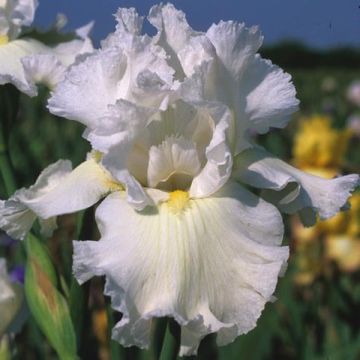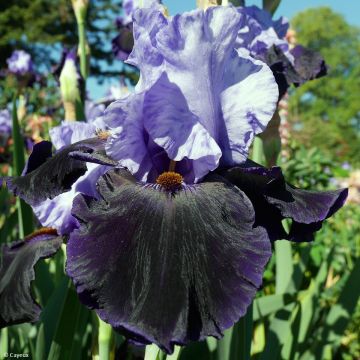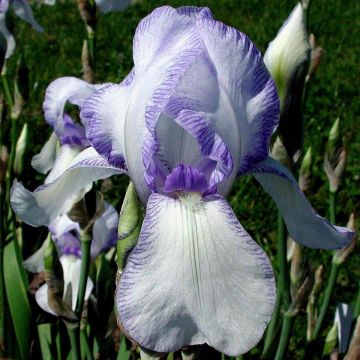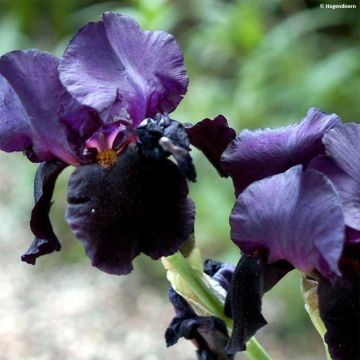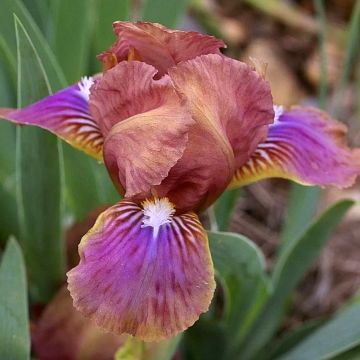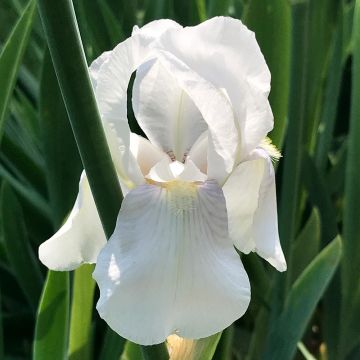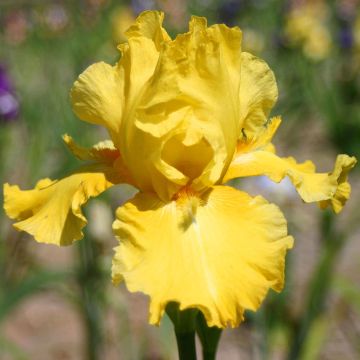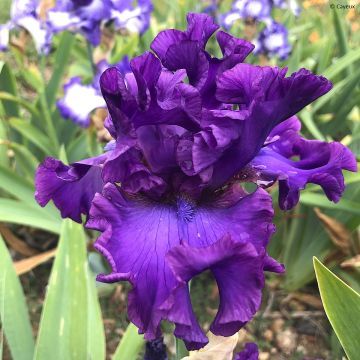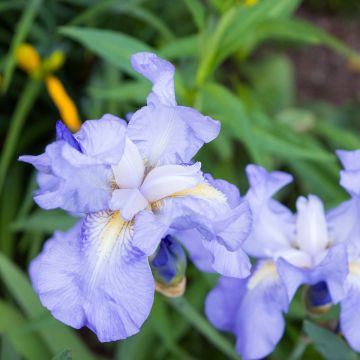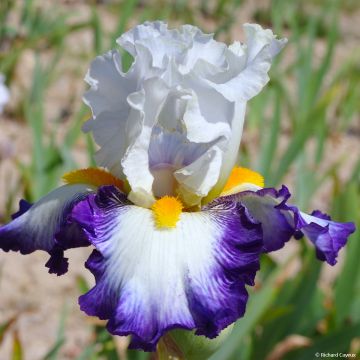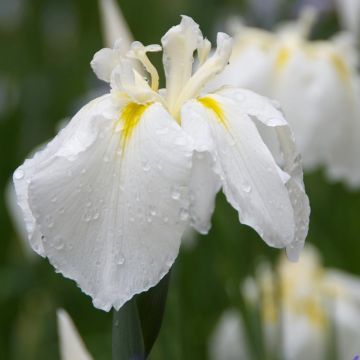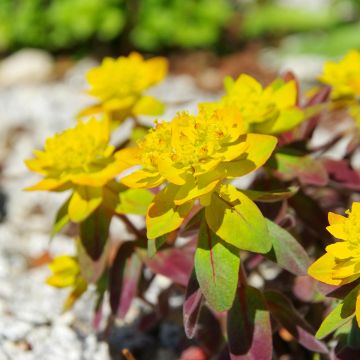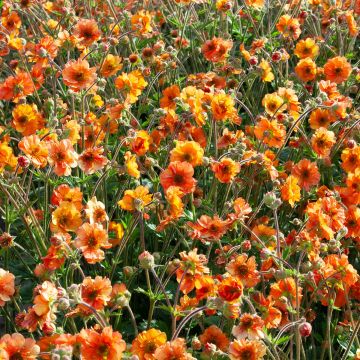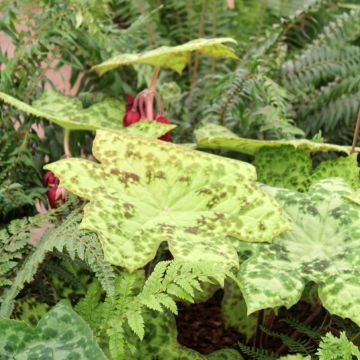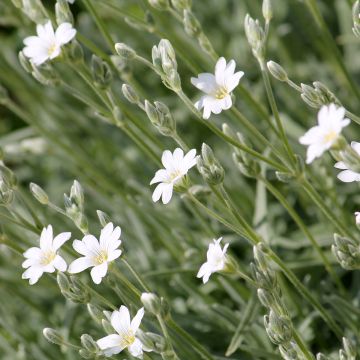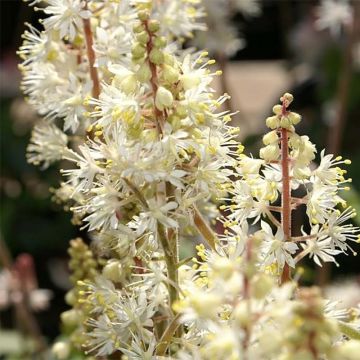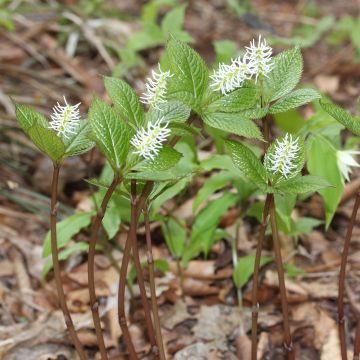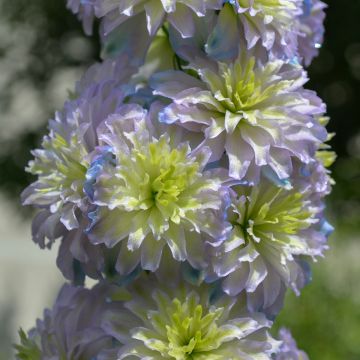Shipping country and language
Your country of residence may be:
Your country of residence is:
For a better user experience on our website, you can select:
Your shipping country:
-
Andorra
-
Austria
-
Belgium
-
Bulgaria
-
Canada
-
Chile
-
Croatia
-
Cyprus
-
Czechia
-
Denmark
-
Estonia
-
Finland
-
France
-
Germany
-
Greece
-
Hungary
-
Iceland
-
Ireland
-
Italy
-
Latvia
-
Lithuania
-
Luxembourg
-
Malta
-
Monaco
-
Netherlands
-
Poland
-
Portugal
-
Romania
-
Slovakia
-
Slovenia
-
Spain
-
Sweden
-
Switzerland
-
United Kingdom
We only deliver seed and bulb products to your country. If you add other products to your basket, they cannot be shipped.
Language:
-
French
-
German
-
Spanish
-
English
-
Italian
My Account
Hello
My wish lists
Log in / Register
Existing customer?
New customer?
Create an account to track your orders, access our customer service and, if you wish, make the most of our upcoming offers.
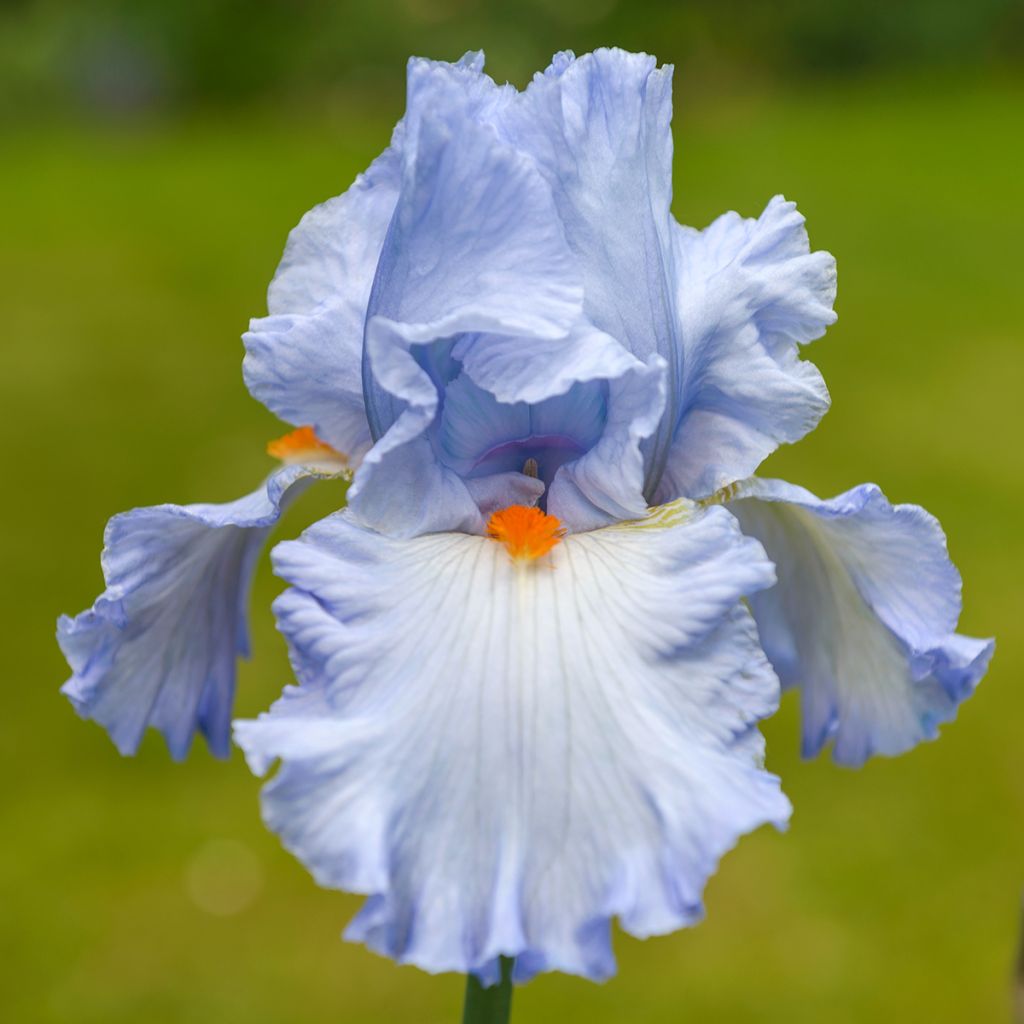

Iris Princesse Caroline de Monaco - Tall Bearded Iris
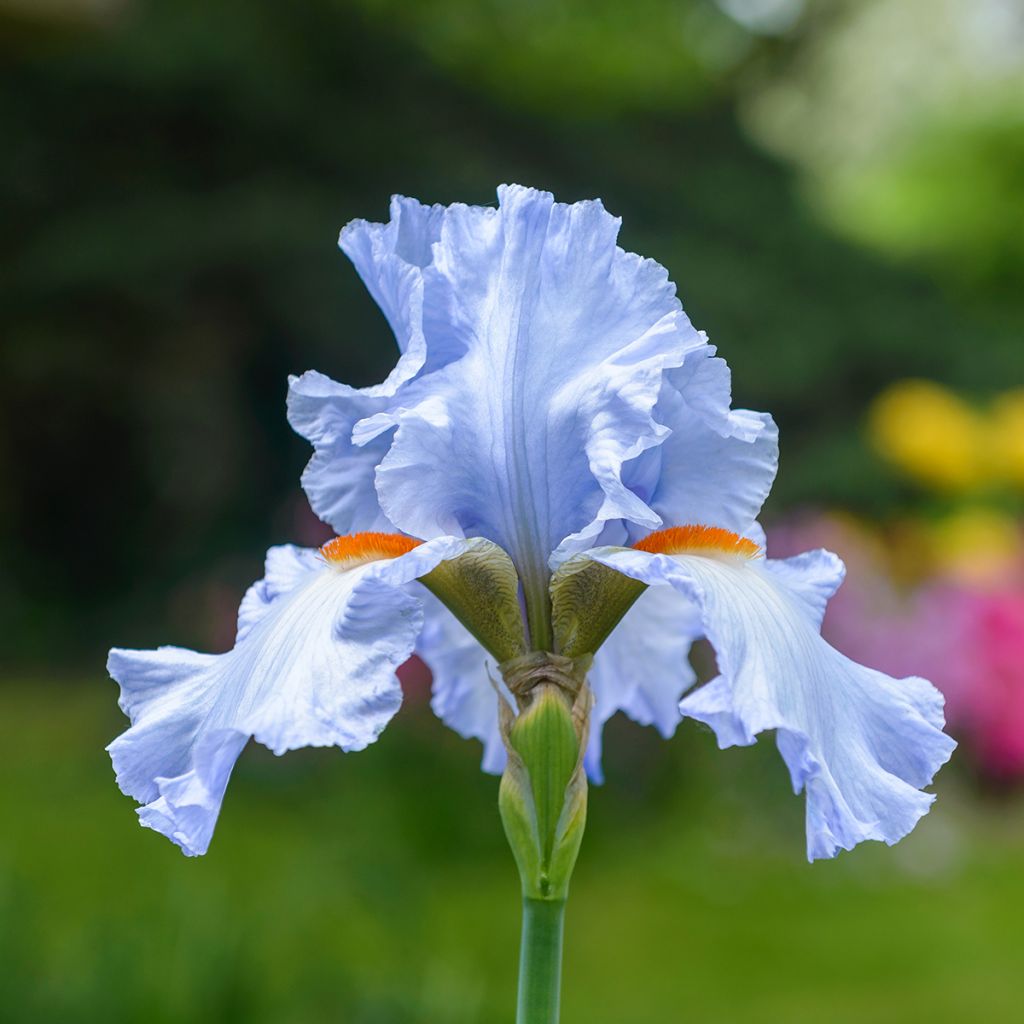

Iris Princesse Caroline de Monaco - Tall Bearded Iris
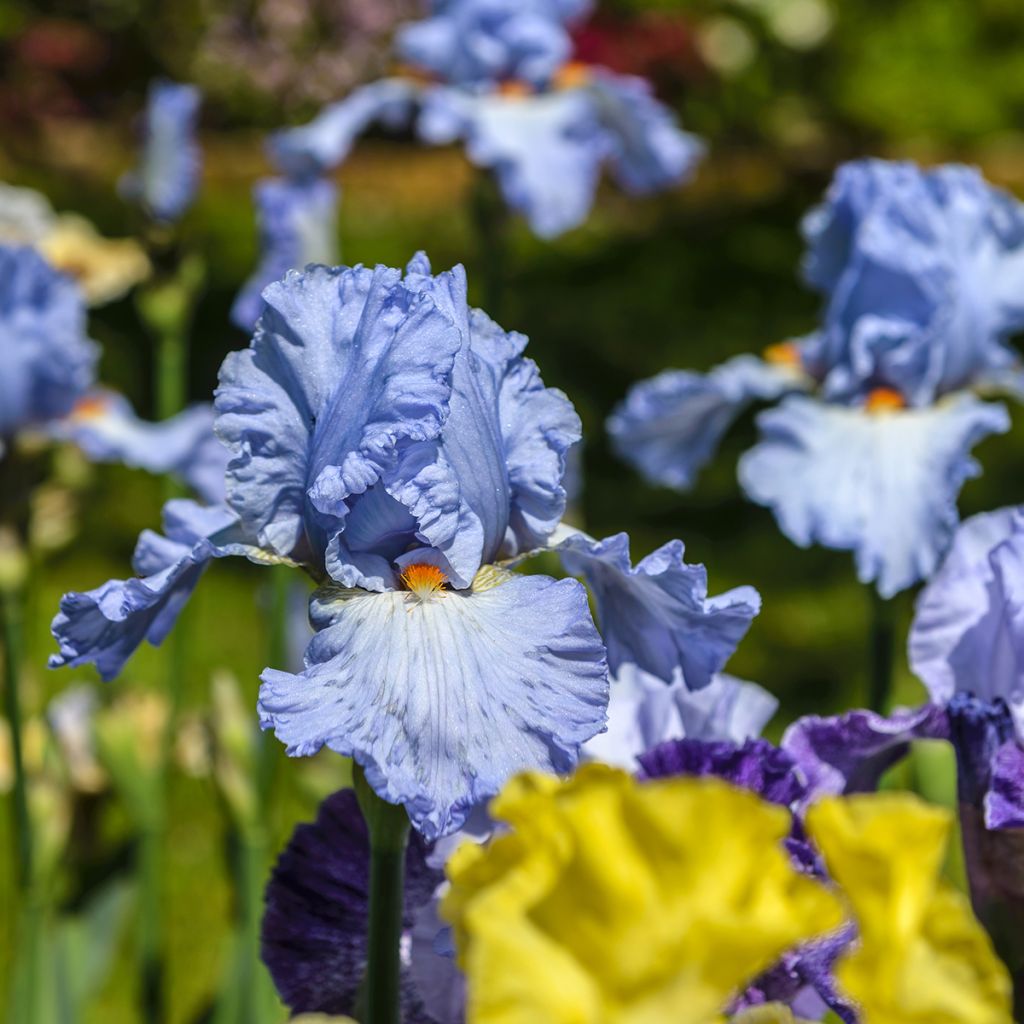

Iris Princesse Caroline de Monaco - Tall Bearded Iris
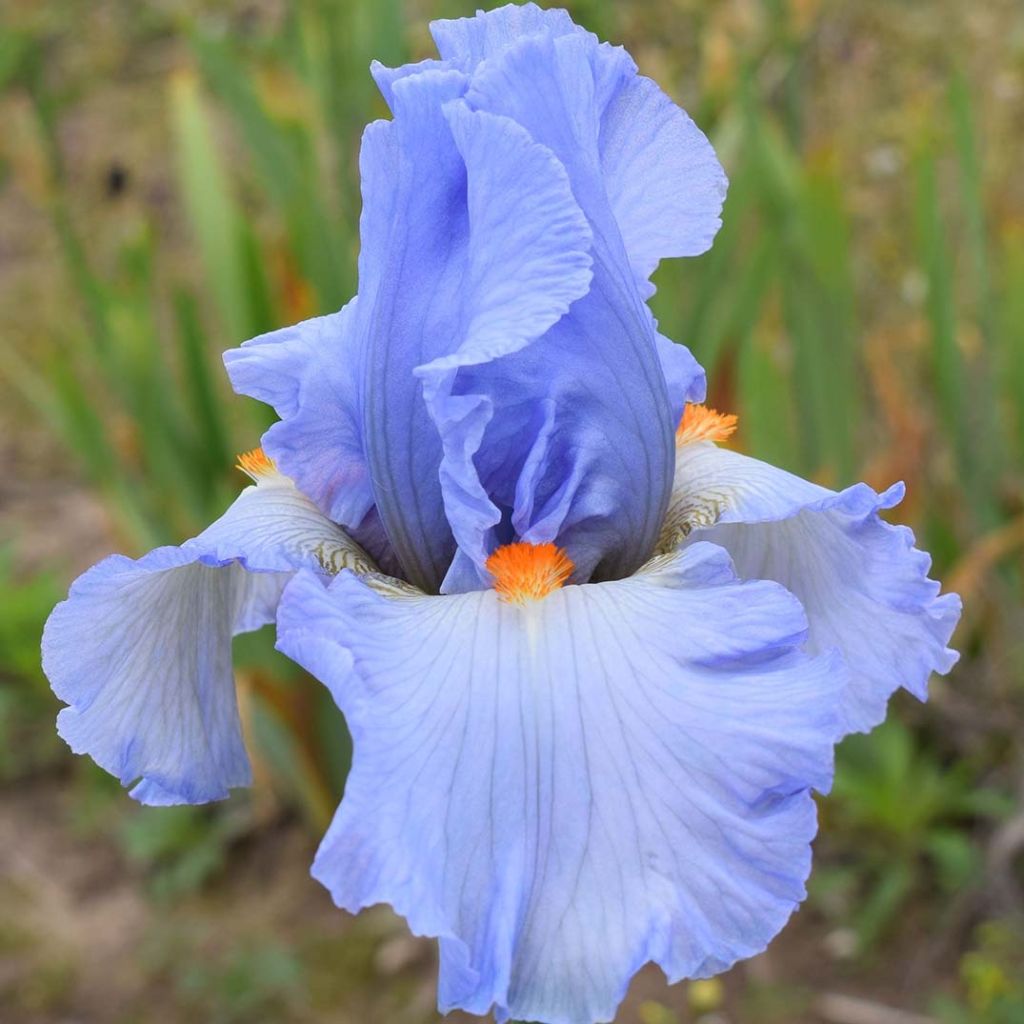

Iris Princesse Caroline de Monaco - Tall Bearded Iris
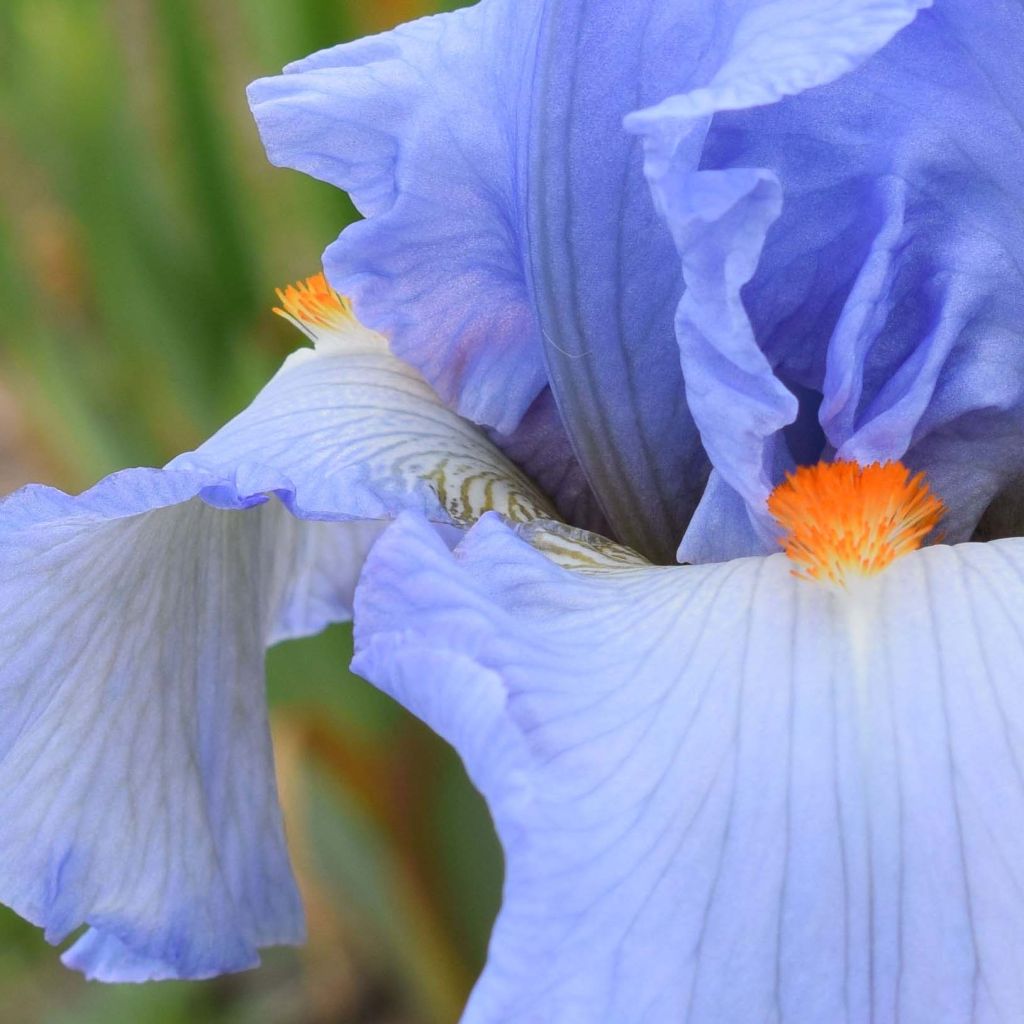

Iris Princesse Caroline de Monaco - Tall Bearded Iris
Iris Princesse Caroline de Monaco - Tall Bearded Iris
Iris germanica Princesse Caroline de Monaco
German Iris, Bearded Iris
Received a young plant in good condition, well packaged and labelled. I will wait until the end of the month to plant them, as the soil will be less dry. We'll see in the spring!
Rachel, 09/09/2020
Order in the next for dispatch today!
Dispatch by letter from €3.90.
Delivery charge from €5.90 Oversize package delivery charge from €6.90.
More information
This item is not available in your country.
Schedule delivery date,
and select date in basket
This plant carries a 12 months recovery warranty
More information
We guarantee the quality of our plants for a full growing cycle, and will replace at our expense any plant that fails to recover under normal climatic and planting conditions.
From €5.90 for pickup delivery and €6.90 for home delivery
Express home delivery from €8.90.
From €5.90 for pickup delivery and €6.90 for home delivery
Express home delivery from €8.90.

Does this plant fit my garden?
Set up your Plantfit profile →
Description
Iris 'Princess Caroline of Monaco' (TB) is an excellent variety of tall garden iris, unmatched for the purity of its sky blue colour, without any trace of purple, beautifully enhanced by a sparkling mandarin orange beard. Each well-branched stem bears numerous buds, ensuring a long flowering period. The plant, with its excellent vigour, quickly forms beautiful clumps that will bloom early in the Iris season, in borders and rock gardens. Its heavenly flowers, with a pleasant sweet floral fragrance, are also stunning in bouquets.
Iris 'Princess Caroline of Monaco' is a perennial rhizomatous plant that develops in elegant deciduous clumps from spring. It belongs to the Iridaceae family. It is one of the many cultivars obtained over centuries, whose controversial origin is debated around the number of chromosomes of potential ancestors. It is worth noting that Garden Irises have European origins. They are plants that thrive in chalky soils and crave sunlight, with their rhizomes needing to "bake" in summer to be able to flower. A minimum of 6 hours of sunlight per day is generally required.
'Princess Caroline of Monaco' will reach a height of 85-90 cm (34-35in) when in bloom, with many buds per stem. The clump will spread indefinitely over time, with the central rhizomes becoming less dense in favour of the outer rhizomes. The foliage consists of long and wide sword-shaped, slightly glaucous green leaves, with parallel veins. Floral stems appear in April and bloom from the top to the lower branches in early May. The sky blue of the flower is almost uniform, with a slightly paler area surrounding the mandarin beard on the sepals. The colour of this plant is enhanced by the thick and iridescent texture of the upright petals and the drooping sepals. It is accompanied by a very pleasant fragrance.
Obtained by Cayeux in 1998
Awarded 4th place at the 1998 American Convention and 4th place in Florence in 1998.
To accompany irises, choose plants based on their needs (exposure, soil...), their growth (low plants or light foliage), their decorative appearance and flowering time. For example, Gaura plants provide little shade to irises and keep the flower bed attractive throughout summer. Eschscholzia plants, like irises, thrive in dry and poor soil. Geraniums, salvias, and Libertia also go well with irises. Slopes and terraced edges can be stabilized by dense plantings of vigorous old varieties that require little care. If the goal is more decorative and there is access for care, modern varieties can be chosen, such as intermediates, which are often very floriferous and less likely to be toppled by wind or rain.
When planting at the base of a wall, the relative shelter from the wind allows for the use of tall irises. Of course, shorter and early-blooming varieties can be planted in the foreground.
Path borders are the realm of dwarf irises less than 40 cm (16in) tall, up to intermediates (in size and earliness) and border irises, which are of medium size but bloom alongside tall irises.
Flower bed borders are the domain of border irises, but also of dwarfs, depending on the circumstances.
In mixed borders, the entire range of sizes can be used, depending on the position (foreground, background) and the size of the surrounding plants.
An iris bed or iris garden, is a paradise for iris enthusiasts, where the choice of varieties reflects personal taste. The use of a complete range of bearded irises allows for two and a half months of flowers in spring. The choice of reblooming irises offers some additional flowers in late summer or autumn, depending on the climate.
The vegetable garden can be adorned with a few clumps or borders of irises for cutting.
Report an error about the product description
Iris Princesse Caroline de Monaco - Tall Bearded Iris in pictures
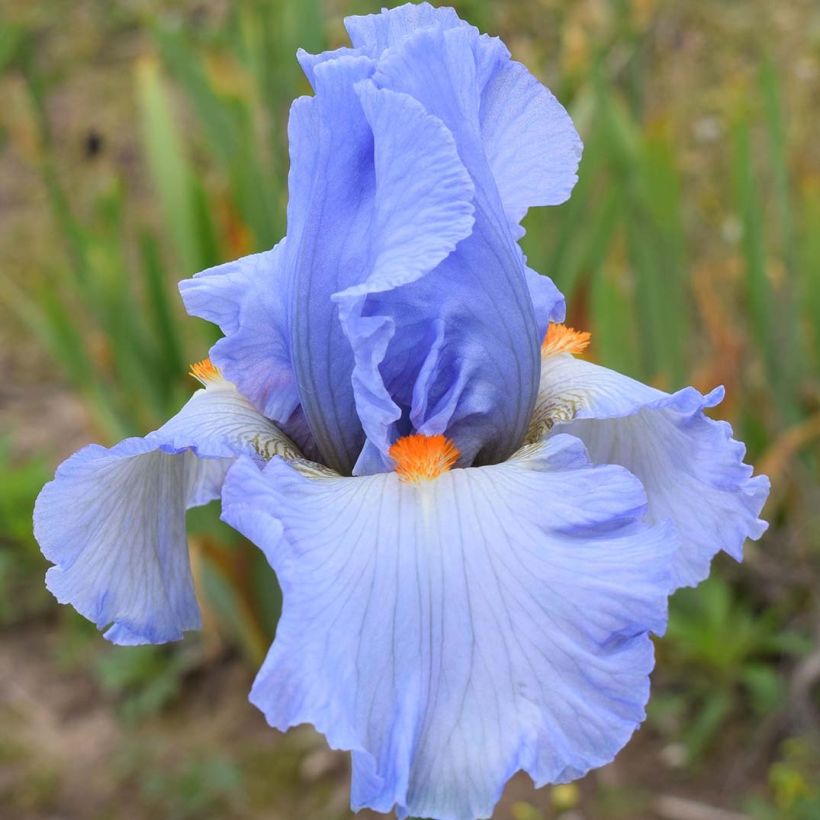

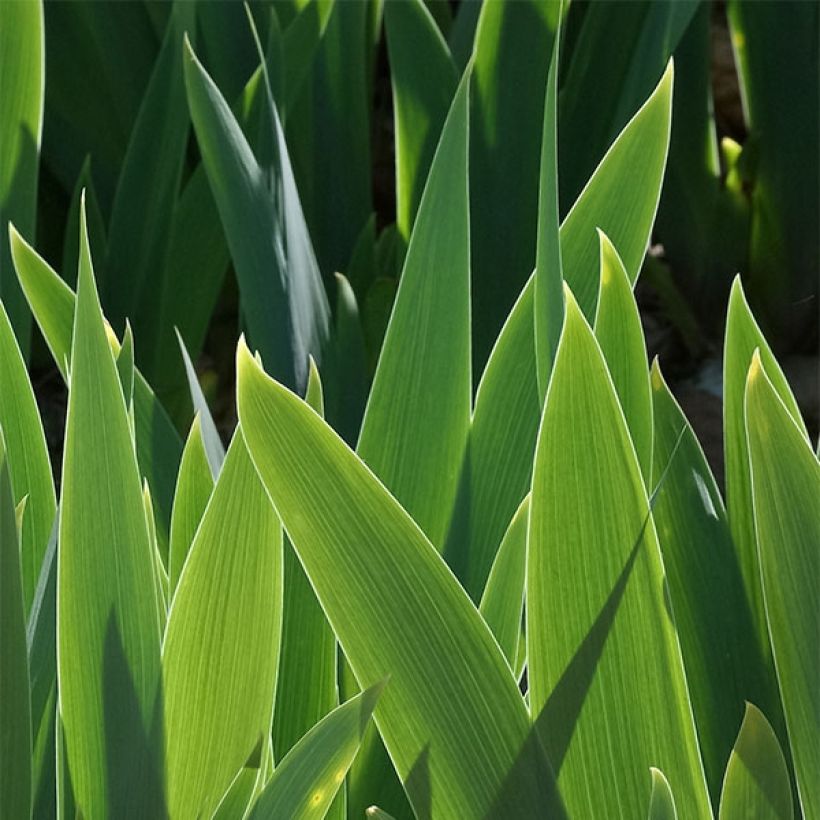

Flowering
Foliage
Plant habit
Botanical data
Iris
germanica
Princesse Caroline de Monaco
Iridaceae
German Iris, Bearded Iris
Cultivar or hybrid
Other German Iris - Bearded Iris
Planting and care
Do you have a sunny, wind-protected, warm location, rather dry in summer?
This is the ideal location for planting tall irises! In the shade, they grow but do not flower. They are hardy and do not need winter protection. Well-drained soil is perfect, even dry. German iris require limestone soil: add lime if it tends to be acidic. Excessively moist soil promotes rhizome rot. Plant from July to September. This allows the rhizomes enough time to grow and develop new roots before winter. They should be planted as soon as they are purchased for the best results. Plan to divide the irises every 4 years or so to give them fresh soil. They have vigorous growth and require space to develop and flower well. Plant with spacing appropriate to the size and vigour of the variety: about 34-50 cm (13-20in) for tall ones. In a monochrome planting, the rhizomes are planted in a staggered pattern. To create a mix of colours, plant them in groups of several plants of the same variety. Always take into account the direction of rhizome growth by arranging them in a star shape, with buds and leaves facing outward, and spacing them well from other varieties so they have room to develop.
Planting
Dig a hole that is wide and deep enough. Create a large conical mound of soil in the hole, on which the rhizome and spread-out roots are placed. Cover the roots. It is important for the rhizome to be left slightly exposed above the soil surface. It should not be planted in a dip (risk of rot), so anticipate that the soil will settle and the iris will sink. In clay or wet soil, the rhizome may even be left raised on a slight mound. To make the soil cling to the roots, lightly firm and water abundantly after planting. Water 2-3 times if necessary until the plants are established.
Maintenance:
Keep the soil free of weeds by lightly hoeing, taking care not to damage the rhizomes or roots. Weeds create shade for the irises, retain moisture (causing rot), and attract slugs. Likewise, remove dry leaves. If they are diseased (with reddish-brown edges from heterosporiosis), burn them. Remove faded flowers.
Planting period
Intended location
Care
-
, onOrder confirmed
Reply from on Promesse de fleurs
Spring flowering perennials
Haven't found what you were looking for?
Hardiness is the lowest winter temperature a plant can endure without suffering serious damage or even dying. However, hardiness is affected by location (a sheltered area, such as a patio), protection (winter cover) and soil type (hardiness is improved by well-drained soil).

Photo Sharing Terms & Conditions
In order to encourage gardeners to interact and share their experiences, Promesse de fleurs offers various media enabling content to be uploaded onto its Site - in particular via the ‘Photo sharing’ module.
The User agrees to refrain from:
- Posting any content that is illegal, prejudicial, insulting, racist, inciteful to hatred, revisionist, contrary to public decency, that infringes on privacy or on the privacy rights of third parties, in particular the publicity rights of persons and goods, intellectual property rights, or the right to privacy.
- Submitting content on behalf of a third party;
- Impersonate the identity of a third party and/or publish any personal information about a third party;
In general, the User undertakes to refrain from any unethical behaviour.
All Content (in particular text, comments, files, images, photos, videos, creative works, etc.), which may be subject to property or intellectual property rights, image or other private rights, shall remain the property of the User, subject to the limited rights granted by the terms of the licence granted by Promesse de fleurs as stated below. Users are at liberty to publish or not to publish such Content on the Site, notably via the ‘Photo Sharing’ facility, and accept that this Content shall be made public and freely accessible, notably on the Internet.
Users further acknowledge, undertake to have ,and guarantee that they hold all necessary rights and permissions to publish such material on the Site, in particular with regard to the legislation in force pertaining to any privacy, property, intellectual property, image, or contractual rights, or rights of any other nature. By publishing such Content on the Site, Users acknowledge accepting full liability as publishers of the Content within the meaning of the law, and grant Promesse de fleurs, free of charge, an inclusive, worldwide licence for the said Content for the entire duration of its publication, including all reproduction, representation, up/downloading, displaying, performing, transmission, and storage rights.
Users also grant permission for their name to be linked to the Content and accept that this link may not always be made available.
By engaging in posting material, Users consent to their Content becoming automatically accessible on the Internet, in particular on other sites and/or blogs and/or web pages of the Promesse de fleurs site, including in particular social pages and the Promesse de fleurs catalogue.
Users may secure the removal of entrusted content free of charge by issuing a simple request via our contact form.
The flowering period indicated on our website applies to countries and regions located in USDA zone 8 (France, the United Kingdom, Ireland, the Netherlands, etc.)
It will vary according to where you live:
- In zones 9 to 10 (Italy, Spain, Greece, etc.), flowering will occur about 2 to 4 weeks earlier.
- In zones 6 to 7 (Germany, Poland, Slovenia, and lower mountainous regions), flowering will be delayed by 2 to 3 weeks.
- In zone 5 (Central Europe, Scandinavia), blooming will be delayed by 3 to 5 weeks.
In temperate climates, pruning of spring-flowering shrubs (forsythia, spireas, etc.) should be done just after flowering.
Pruning of summer-flowering shrubs (Indian Lilac, Perovskia, etc.) can be done in winter or spring.
In cold regions as well as with frost-sensitive plants, avoid pruning too early when severe frosts may still occur.
The planting period indicated on our website applies to countries and regions located in USDA zone 8 (France, United Kingdom, Ireland, Netherlands).
It will vary according to where you live:
- In Mediterranean zones (Marseille, Madrid, Milan, etc.), autumn and winter are the best planting periods.
- In continental zones (Strasbourg, Munich, Vienna, etc.), delay planting by 2 to 3 weeks in spring and bring it forward by 2 to 4 weeks in autumn.
- In mountainous regions (the Alps, Pyrenees, Carpathians, etc.), it is best to plant in late spring (May-June) or late summer (August-September).
The harvesting period indicated on our website applies to countries and regions in USDA zone 8 (France, England, Ireland, the Netherlands).
In colder areas (Scandinavia, Poland, Austria...) fruit and vegetable harvests are likely to be delayed by 3-4 weeks.
In warmer areas (Italy, Spain, Greece, etc.), harvesting will probably take place earlier, depending on weather conditions.
The sowing periods indicated on our website apply to countries and regions within USDA Zone 8 (France, UK, Ireland, Netherlands).
In colder areas (Scandinavia, Poland, Austria...), delay any outdoor sowing by 3-4 weeks, or sow under glass.
In warmer climes (Italy, Spain, Greece, etc.), bring outdoor sowing forward by a few weeks.
